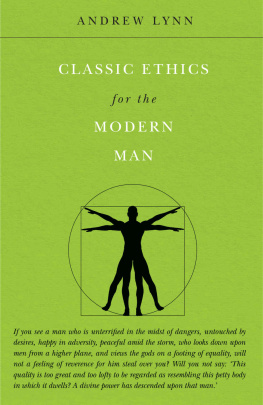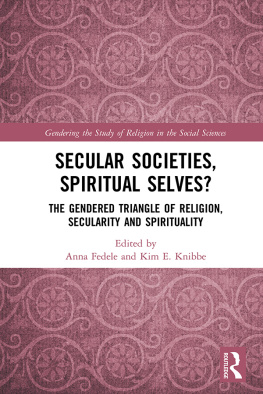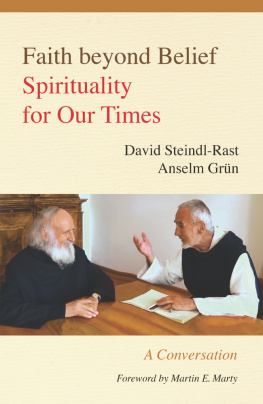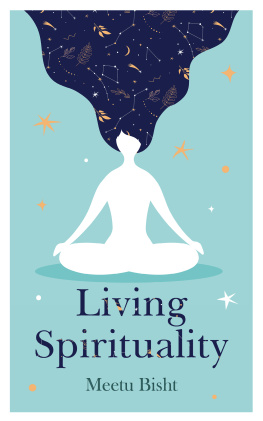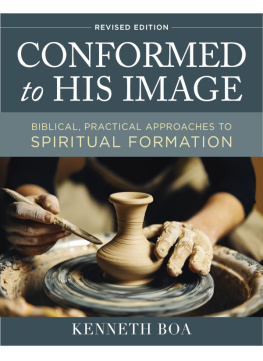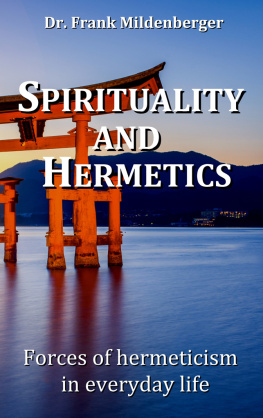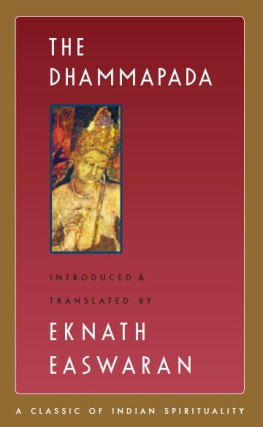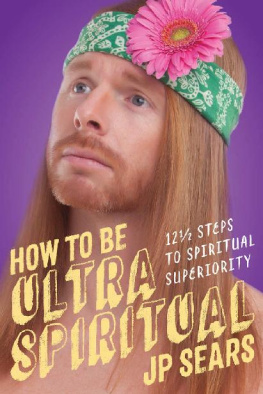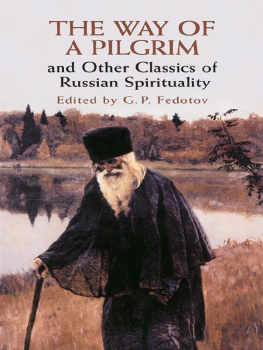All rights reserved. No part of this publication may be reproduced, stored in a retrieval system, or transmitted, in any form or by any means, electronic, mechanical, photocopying, recording or otherwise, without the prior permission of the publishers.
Hard times create strong men. Strong men create good times. Good times create weak men. Weak men create hard times.
The basic premise of this book is that strength and weakness have a spiritual dimension.
It is a mans awareness that he partakes in a higher order of reality that gives him the backbone and fortitude to withstand the many challenges he will encounter in life. Once a man appreciates, however dimly, that he is one aspect or manifestation of the transcendent source of being, then he begins to appreciate his own intrinsic dignity. And once a man begins to appreciate his own intrinsic dignity, everything changes for him.
The transformation occurs on several levels.
It begins on the personal level. If we all partake, in some mysterious way, of the divine, then we naturally start to treat ourselves with more respect: that means to bring under control damaging impulsivity and to commit to healthy physical, mental, and emotional development. This spreads out into our communities, because it goes without saying that if one personby virtue of their humanitypartakes of the divine, so does the next person, and the next person after that, and the respect due to ourselves we will also find to be due to others. Finally, the transformation manifests on the political level, for tyrannical governments work through carrot and stickand what cares a man for carrot and stick when he knows that has an infinite source of carrots and that no stick can really hurt him?
So why is it that young men, in the West at least, generally show little interest in spirituality?
It is undoubtedly true that mainstream religions have often found difficulty communicating their value effectively in the modern age. Modern Christianity has tended to present to the world a mixture of apathetic moralism, seemingly with the primary goal of causing minimum offence, coupled with an anodyne metaphysics that fails to reflect the subtlety and diversity of its own historic traditions. Islam suffers from the opposite difficulty: to outsiders it can be perceived, wrongly no doubt, as harsh, unforgiving, and unwelcoming. The Far Eastern faiths have done better at appealing to modern concerns but sometimes at the cost of sacrificing their complexity: there are only so many times that one can remain mindful or live in the present without asking if this is a sufficient way to address mans basic condition.
Exacerbating these internal weaknesses are powerful political and economic forces arrayed against any resurgence in spiritual consciousness. These are forces that have been successful, on the whole, in breaking down traditional values and denigrating historic achievements. For them, nothing could be more undesirable than the reawakening of the diverse nations of the world to full consciousness of their intrinsic dignity and strength.
Theres nothing conservative, then, about the brand of spiritual teaching that you will find in this book. It has famously been said that, in a time of universal deceit, telling the truth is a revolutionary act. We could equally well say that, in a time of universal triviality, seeking answers to the great questions of existence is likewise a revolutionary course of action. It is those who have unthinkingly adopted the self-satisfied assumptions and prejudices of their own eraincluding the presupposition that the search for the answers to the deep questions of existence, a search conducted by virtually all societies prior to around the mid-twentieth century, is an exercise in futilitywho are the real conservatives. Those who have the humility to ask the question Could it be us who have gone astray? are the true radicals, for it is they who are willing to challenge the complacency of the present age.
There is a kind of militant atheism afoot that purports to show that faith is incompatible with science and that people do awful things in the name of religion. Its true, of course, that we cant prove the existence of a supreme being or higher power. But it was also true that cavemen in their day would have been unable to prove the existence of electricity or radio wavesif they had even known that such things existed. As for the bad things people do in the name of religion, it should be obvious that people have done bad things in the name of politics and science too, but we would never give up on trying to establish better societies or to better understand the universe in which we find ourselves.
Spirituality for the purposes of this book is best defined as a visceral engagement with the deep questions of existence. Visceral, because youve got to feel it in your marrow and through your whole being. Engagement, because it happens when life grabs you by the collar and roughs you up a bit, forcing you to take notice. And questions, because we are not able to give answers until the slow process of awakening has reached its endand sometimes not even then. Spirituality in this sense is always empowering even if not always comfortable. It is an implacable enemy of smallness.
We begin with The Kybalion, a work that summarizes the fundamental principles of spiritual wisdomthe principles of correspondence and polarity, for examplesaid to have been transmitted from as far back as ancient Egypt. From there we move on to Ecclesiastes of the Hebrew Biblea work that in its brutal honesty and practical wisdom is unlike anything you may have come across elsewhere. Our next stop is ancient China and the Tao Te Ching of Lao-tzu, a Daoist classic that teaches of the mysterious force that runs through all things and how to bring our being into harmony with it. Two works from the Buddhist tradition follow: the Dhammapada, which lays out wise guidance for living well, and the Vitakkasanthana Sutta, or On Governance of Thoughts, a precise guide to maintaining mental and emotional equilibrium. We return to Daoism in The Writings of Chuang-tzu, where we are instructed in the art of self-realisation, before turning to the Bhagavad Gita which expoundsby reference to dharma, yoga, and wara spiritual path that is bold, brave, noble, and active. Bringing to an end the first half of the book are the works of two Sufi masters, al-Ghazalis The Alchemy of Happiness and Rumis The Masnavi, which teach the cultivation of self as an agent of the divine.
Modern spiritual classics are the focus of the second half of the book. Blaise Pascal begins this part with his famous wager: it is quite logical, he shows using an early version of game theory, to believe in God. Two Germans come next: Arthur Schopenhauer, in On the Vanity of Existence, opens the way for a spiritual path in an atheistic age, whereas Friedrich Nietzsche, in Thus Spoke Zarathustra, points to a form of transcendence that can be achieved by calling upon the unrecognized potential of our nature. We conclude with James Allens As a Man Thinketh, which brings us full circle back to the age-old principle that the process of renewal and transformation, which is at the heart of all true spirituality, must start from within.


